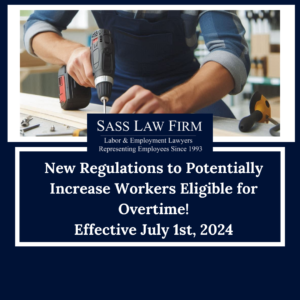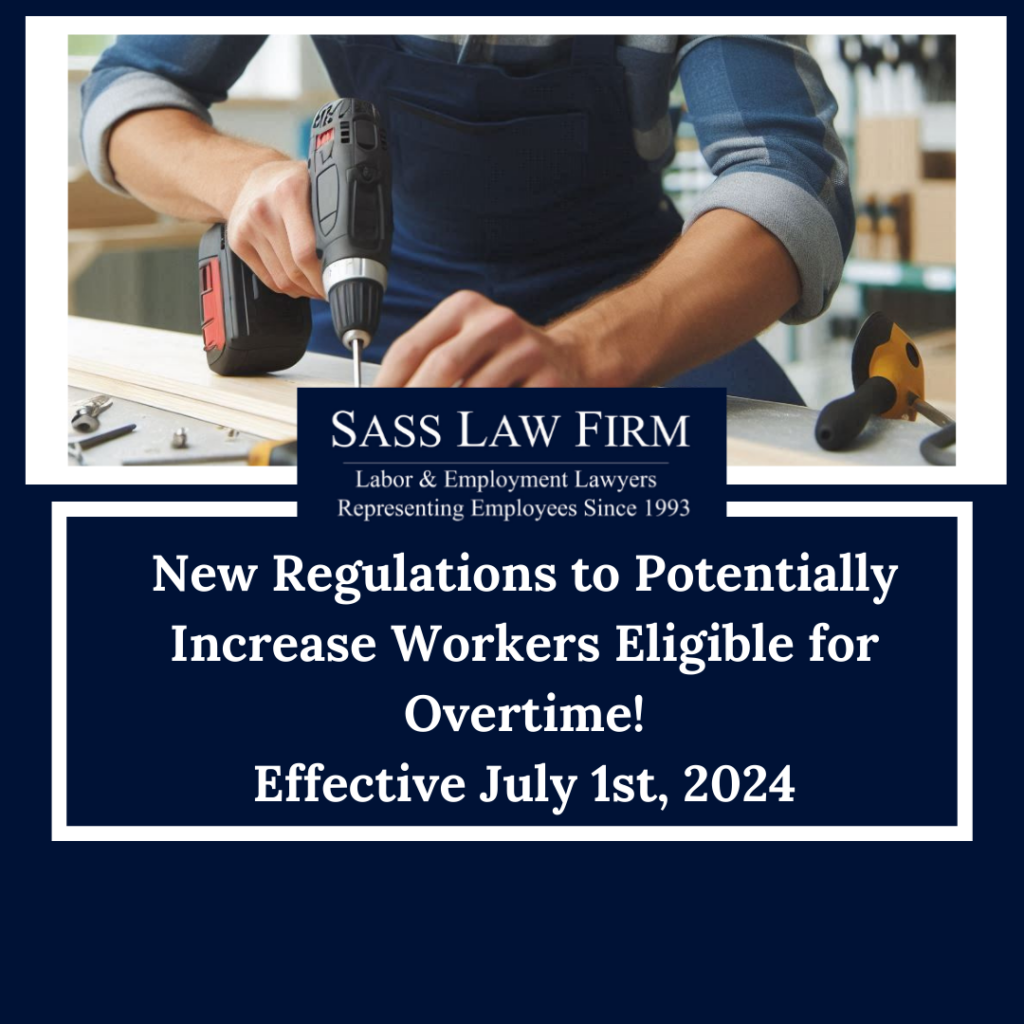 Significant changes to the Fair Labor Standards Act (FLSA) will take effect on July 1, 2024, impacting millions of American workers and businesses across various industries. These changes primarily concern overtime exemptions and an increased salary threshold, marking a pivotal moment in labor law and workplace regulations.
Significant changes to the Fair Labor Standards Act (FLSA) will take effect on July 1, 2024, impacting millions of American workers and businesses across various industries. These changes primarily concern overtime exemptions and an increased salary threshold, marking a pivotal moment in labor law and workplace regulations.
Overview of the FLSA Rule Changes
The FLSA, enacted in 1938, establishes minimum wage, overtime pay eligibility, and recordkeeping requirements for full-time and part-time workers in the private and public sectors. One key aspect of the FLSA is defining which employees are eligible for overtime pay for working over 40 hours in a workweek.
Overtime Exemptions
The test under the FLSA to determine whether certain categories of employees are exempt from overtime pay is a two-part analysis. Only employees who meet certain exemption criteria related to their job duties and salary level are exempt from the requirement to receive overtime.
Salary Level: The first criterion requires employers to pay employees on a salary basis, a minimum pre-determined amount constituting all compensation per pay period, and is not subject to reduction without regard to the number of hours worked. Before July 2024, the minimum salary threshold was $684 per week or $35,568 annually. With the new regulations, this threshold will increase to $43,888 annually ($844 per week) starting July 1, 2024. This means employees must earn at least $43,888 per year to potentially qualify for exemption from overtime pay, regardless of their job duties. As of January 1, 2025, the salary threshold will increase again to $58,656 ($1,128 per week) to qualify for exemption from overtime pay.
The analysis does not end here; the next step is determining whether the employee’s position and duties fall into recognized exemption categories.
Job Duties: The most common exemptions apply to executive, administrative, professional, and outside sales employee
- Executive Exemption: This typically applies to employees whose primary duty is managing an enterprise or a customarily recognized department supervising and/or directing the work of at least two other full-time employees. They must have the requisite authority over hiring and firing, and/or their decisions regarding advancement or promotion carry significant weight.
- Administrative Exemption: This usually covers employees whose primary duty involves office or non-manual work directly related to management policies or general business operations and who exercise independent discretion and judgment in performing their duties.
- Professional Exemption: Includes employees whose primary duty requires advanced knowledge in a field of science or learning.
- Outside Sales Exemption: This exemption includes employees whose primary duty involves making sales, placing orders, or securing contracts for services away from the employer’s place of business. Notably, the salary thresholds discussed herein do not apply to this exemption.
Highly Compensated Workers
There are also certain classes of employees, referred to as highly compensated workers, that are also exempt from minimum wage and overtime requirements if they are paid a total compensation of $107,432 (at least $684 per week, of which must be on a salary or fee basis) annually. To qualify as a highly compensated employee, in addition to this salary threshold, the employee’s primary duty must include performing office or non-manual work, and the employee must customarily and regularly perform at least one of the exempt duties or responsibilities required of the executive, administrative and/or professional employees and As of July 1, 2024, this salary threshold will also increase to $132,964 per year ($844 per week must be paid on a salary or fee basis). It will rise again on January 1, 2025, to $151,164 per year ($1,128 per week must be paid on a salary or fee basis).
Implications for Workers
For workers earning salaries between the old and new thresholds, the change may result in eligibility for overtime pay if their job duties fall outside the various exemptions. This could potentially increase take-home pay for affected employees who regularly work overtime.
Legal Challenges and Considerations
While the FLSA rule change aims to protect workers and ensure fair compensation, it has sparked controversy. Legal challenges have been filed against the new salary threshold increase, primarily by business associations and other groups representing employers. In May 2024, several businesses and industry lobbying groups filed a lawsuit in Texas seeking to halt the new rule from taking effect and ultimately declare it unconstitutional. Notably, this case was before the same court that had previously struck down similar salary threshold increases during President Obama’s administration. The case is Plano Chamber of Commerce et al v. Julie Su, Acting Secretary, U.S. Dept. of Labor et al., filed with the United States District Court of the Eastern District of Texas.
Proponents of the new rule argue that it addresses longstanding concerns about stagnant wage growth and income inequality, especially for middle-income earners who work long hours yet have been exempt from overtime pay.
Conclusion
If and until a court issues a stay preventing the rule from going into effect, the new regulations are effective as of July 1, 2024.
If you have questions about whether you now qualify under the new rules or want more information on how these changes apply to your job, schedule a consultation with Sass Law Firm. Sass Law Firm’s attorneys are experienced wage-and-hour employment lawyers who have represented employees since 1993.

